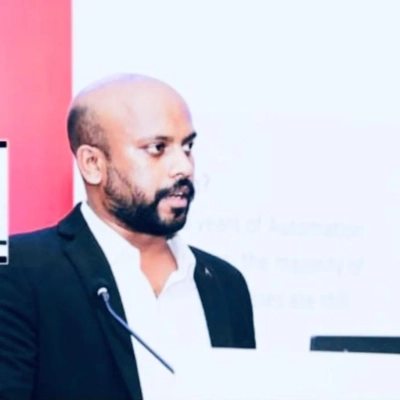Company culture is a crucial factor in attracting and retaining top talent across diverse industries. We asked experts to describe a time when their companies’ culture helped attract or retain top talent. Learn how cultures can make or break candidate and employee employment decisions.
- Authentic Culture Attracts Value-Driven Professionals
- Learning Culture Retains Top Design Talent
- Bold Culture Rewards Risk-Taking and Innovation
- Autonomy and Trust Foster Creative Excellence
- Remote Culture Thrives on Deliberate Connection
- Values-First Approach Magnetizes Aligned Talent
- Flexible Workspace Empowers Employee Decision-Making
- Autonomy Attracts High-Performing SEO Professionals
- Psychological Safety Cultivates Open Communication
- Transparency Builds Trust in Daily Operations
- Freedom and Trust Encourage Proactive Contributions
- Global Flexibility Attracts International Talent
- Ownership Culture Drives Meaningful Impact
- Purpose-Driven Environment Retains Healthcare Professionals
- Industry Expertise Differentiates Recruiting Culture
How Company Culture Attracts and Retains Top Talent
Authentic Culture Attracts Value-Driven Professionals
Once there was a highly skilled candidate who turned down a higher-paying offer elsewhere to join our team—all because of our culture.
We’ve built a work environment that prioritizes autonomy, trust, and personal growth. This candidate told us she felt like “just a number” in other interviews, but during ours, she felt heard and valued. We didn’t just talk about culture; we showed it—by being transparent about our mission, showing how we support flexibility and remote work, and by letting her meet the team before she accepted.
The key factor here is authentic communication and values alignment. She wasn’t just looking for a job—she wanted a place where she could grow and make a real impact. That’s exactly what our culture offers.
 Mark Damsgaard
Mark Damsgaard
Founder, Global Residence Index
Learning Culture Retains Top Design Talent
Last year, we had a senior designer who was receiving a very attractive offer from a big tech company.
It came with a significant salary increase, which was difficult to ignore. We knew she was considering it, and honestly, we were worried about losing her. She’s incredibly talented and a great leader within her team.
When we sat down with her to discuss it, she told us that while the money was appealing, she genuinely loved working here. She talked about how much she valued our culture of continuous learning and development.
We invest heavily in workshops, industry conferences, and even internal knowledge-sharing sessions, and she felt like she was constantly developing her skills in ways that just weren’t available elsewhere.
 Shantanu Pandey
Shantanu Pandey
Founder & CEO, Tenet
Bold Culture Rewards Risk-Taking and Innovation
High performers aren’t drawn to safety—they’re drawn to places where risk is rewarded.
We make it very clear from day one: bold thinking isn’t just welcomed—it’s expected. That cultural standard attracted one of our top hires, a senior team lead who had multiple offers on the table. What sealed the deal? She told us, “This is the only place that didn’t just say they support big ideas—they showed it.”
We celebrate risk-taking, even if it means an occasional misstep. That mindset gives high performers permission to push boundaries without fear of getting penalized for trying something new. The result? Our retention rate among leadership roles has stayed well above the industry average, and innovation continues to come from every corner of the team.
 Kraig Kleeman
Kraig Kleeman
CEO, The New Workforce
Autonomy and Trust Foster Creative Excellence
During a particularly competitive hiring cycle, we brought on a senior strategist who told me—weeks after joining—that what drew her in wasn’t the client roster or brand prestige but how we prioritize autonomy, trust, and clarity. Our culture isn’t built around endless meetings or performative hustle—it’s built around results, creativity, and respect for personal bandwidth. She said our “quiet confidence” and structured freedom gave her space to do her best thinking. That keeps great people here: we attract talent who want to lead, not just contribute, and we provide them with the framework—and trust—to do that.
 Kristin Marquet
Kristin Marquet
Founder & Creative Director, Marquet Media
Remote Culture Thrives on Deliberate Connection
We know people don’t just stay at a job for the work; they stay for the energy, the team, and the feeling that they matter.
We’re fully remote and located all around the globe, but we’ve made a conscious effort to never feel disconnected. In fact, the very nature of being remote has pushed us to be more intentional about how we connect, communicate, and create a culture that makes people want to stay.
We run consistent weekly check-ins with every employee to ensure no one feels like they’re floating in the void. These calls aren’t stiff status updates; they’re spaces to problem-solve together, bounce ideas around, share what’s working, and flag what’s not.
We also keep things light and playful throughout the week in Slack, posting memes, running games with fun prizes, and celebrating every win.
The key factor is deliberate connection. In a remote environment, culture doesn’t build itself. You have to actively create space for trust, collaboration, and shared experiences. Because we’ve invested in building a workplace that feels like a community, not just a to-do list, we’ve been able to not only attract top-tier talent but also keep them engaged, motivated, and excited to grow with us.
 Bryce North
Bryce North
Founder, Don’t Be A Little Pitch
Values-First Approach Magnetizes Aligned Talent
We don’t just coach individuals to find meaningful work—we live those same values within our own company culture. Over the years, we’ve worked with thousands of clients seeking purpose-driven roles, and that reflection has deeply shaped how we attract and retain our own team. In an era where top talent values authenticity, flexibility, and growth, we’ve found that the culture you cultivate isn’t just a retention tool—it’s a magnet for aligned, high-performing individuals.
Our company was built on the belief that people thrive when they feel seen, supported, and challenged. That belief forms the foundation of our internal culture—a culture designed not just for productivity, but for purpose, wellness, and belonging.
One standout example of this was during a hiring push in early 2023. We were looking for a new Senior Career Strategist—a role that required both clinical depth and entrepreneurial drive. Despite a highly competitive market, we were able to secure a top-tier candidate who had also received offers from several larger firms.
Why did she choose us? She said:
“I saw a company where coaching wasn’t commodified. It was respected. And the people here weren’t just clocking in—they cared.”
The data is clear: culture drives retention, not compensation
The key factor in her decision—and in her long-term retention—was our values-first culture. We don’t just list values on a wall; we operationalize them. That means: weekly reflection huddles that focus on growth and well-being; quarterly “curiosity credits” to support professional development; open-door feedback loops where strategy is co-created, not handed down; location flexibility and asynchronous work that respects personal rhythms.
According to a 2024 LinkedIn Global Talent Trends report, 65% of professionals say a company’s culture is more important than salary in deciding whether to stay or leave. The same study found that flexible, values-driven cultures had 47% higher employee retention rates than those that emphasized performance alone.
Additionally, Harvard Business Review research shows that companies with strong cultural alignment are 3.7 times more likely to retain top talent during market shifts or economic uncertainty.
We often remind our clients: culture isn’t a perk—it’s a promise. That promise—to value people holistically, to grow with intention, and to build trust—has been the key to both our success and our sustainability.
 Miriam Groom
Miriam Groom
CEO, Mindful Career Inc., Mindful Career Coaching
Flexible Workspace Empowers Employee Decision-Making
On several occasions, I have heard from existing employees that our company culture is ultimately what made them turn down competing job offers or continues to motivate them to decline interested recruiters looking to hire them away. The key factor here has tended to be a very open and collaborative workspace where our talent is given the autonomy to determine their own priorities and make their own decisions, while still being provided with the resources to complete their projects. We also have the benefit of fairly flexible scheduling, allowing employees (especially our work-from-home staff) to work when they want to a certain degree.
 Soumya Mahapatra
Soumya Mahapatra
CEO, Essenvia
Autonomy Attracts High-Performing SEO Professionals
We hired a senior SEO strategist who turned down a higher-paying offer to work with us. Culture was the clincher.
The key factor was autonomy. We don’t micromanage. We back talent to own results, test bold ideas, and see their impact fast. That’s rare in digital agencies, and it resonates with high performers who want room to grow.
The digital marketing industry is full of top-down structures. Letting people lead from day one builds long-term commitment and attracts the right professionals.
 Callum Gracie
Callum Gracie
Founder, Otto Media
Psychological Safety Cultivates Open Communication
What I really think is that the best talent does not join you for perks; they join for how your culture feels when no one is watching. One moment that stands out was during an interview with a senior designer. Instead of asking typical questions, we invited them to our Slack for a day to observe how we work, joke, debate, and support each other.
They told us later, “I joined because I saw your team celebrate small wins, admit mistakes without fear, and share ideas without hierarchy.” That was the key factor—psychological safety. People could show up fully without pretending.
We did not craft a culture to impress. We built one to operate with clarity, trust, and real communication. That openness became our strongest recruiting tool. The right people see it, feel it, and want to be part of it. Culture is not a slide deck. It is what you do when no one’s performing.
 Sahil Gandhi
Sahil Gandhi
Brand Strategist, Brand Professor
Transparency Builds Trust in Daily Operations
I believe that culture is not what you say. It is what people feel when they work with you.
A moment that proved this was when a senior engineer chose to join us instead of a larger company offering a higher salary. The reason was transparency. During the interview process, we gave them access to a few internal Slack channels, invited them to a casual team call, and let them observe how we communicate. They saw open conversations, team leads owning up to mistakes, and decisions made with clarity instead of hierarchy.
That experience gave them a real sense of how we operate day to day. The key factor was trust. People want to work where they are respected, heard, and given space to contribute.
Culture is not about perks. It is about how you act when no one is watching. That is what keeps top talent.
 Vivek Nair
Vivek Nair
Co-Founder, BotGauge
Freedom and Trust Encourage Proactive Contributions
One moment that stands out was when we were hiring for a link-building role, and the candidate told us straight up that what drew them in was how real and down-to-earth our team seemed. We’re not one of those companies that talks about “culture” but then runs things like a corporate machine. We’re super open with communication, there’s no micromanaging, and everyone’s trusted to own their work. I think the key factor is that we actually listen—if someone has a new idea or wants to tweak how we do something, they’ll be heard. That kind of freedom and trust helps people feel more confident in their abilities, and it encourages them to be proactive instead of just following instructions.
 Kristiyan Yankov
Kristiyan Yankov
Growth Marketer, Co-Founder, AboveApex
Global Flexibility Attracts International Talent
Our international and highly flexible work culture has played a major role in both attracting and retaining top talent across different regions. A clear example is our global marketing team, where professionals are based in multiple countries and work fully remotely. We don’t enforce rigid schedules; instead, employees are empowered to organize their own working hours, as long as tasks are completed on time and quality standards are maintained.
This level of flexibility allows employees to balance work responsibilities with their personal lives, time zones, and individual peak productivity hours. For many candidates, especially in today’s global job market, the ability to work remotely while managing their own schedule is one of the most attractive benefits. It also enables us to tap into a much larger international talent pool, as we’re not limited by location.
Beyond flexibility, what truly retains our employees is the combination of trust, autonomy, and international exposure that they gain by working on cross-border projects with clients worldwide. Our culture encourages open communication, direct access to leadership, and continuous professional growth, which fosters a strong sense of ownership and long-term engagement.
In a competitive hiring environment, this culture of flexibility, trust, and global collaboration has become one of our strongest assets in attracting and keeping top professionals.
 Ion Oyarzun
Ion Oyarzun
Marketing Specialist, INS Global
Ownership Culture Drives Meaningful Impact
We focus on building a culture where every team member feels directly responsible for the company’s success. From early on, we’ve given people clear ownership over projects rather than just tasks. This creates a real sense of impact. When someone’s work clearly moves the business forward, it motivates them to stay and keep pushing.
We also encourage open feedback and honest conversations, which help build trust and keep everyone aligned with our mission to make franchising accessible. That transparency and accountability have been key in attracting people who want to be part of something meaningful, not just clock in and out.
 Alex Smereczniak
Alex Smereczniak
Co-Founder & CEO, Franzy
Purpose-Driven Environment Retains Healthcare Professionals
Our culture isn’t just a “nice to have”—it’s the engine behind everything we do. We’ve consistently attracted top-tier clinicians, therapists, and medical professionals not because we offer flashier perks, but because we lead with purpose.
One standout example: during a particularly competitive hiring cycle in South Florida, we onboarded a nationally recognized trauma therapist who told us she chose Legacy over higher-paying offers because of our values-first culture. What sealed the deal was our willingness to innovate around people—not just processes. She saw that we were the kind of place that built specialized programs for first responders, women, and couples not because they’re profitable—but because they’re needed.
The key factor? Psychological safety combined with mission clarity. Our team members know they’re trusted, supported, and heard—and they know the work they do changes lives. That’s what retains high performers long after the paycheck fades into the background.
 Travis Benfaida
Travis Benfaida
Chief Executive Director, Legacy Healing Center
Industry Expertise Differentiates Recruiting Culture
Our “recruiter-first” culture attracts top talent because we practice what we preach.
This authentic approach has become our biggest competitive advantage in a crowded recruiting market.
When we were hiring our third team member, I had a choice: bring on a generalist recruiter for $60K or invest in a supply chain professional willing to learn recruiting for $85K. Most agencies would choose the cheaper option, but our culture prioritizes industry expertise over cost savings because that’s exactly what we tell our clients to do.
That decision paid off immediately. Our new hire landed a VP of Logistics placement within her first month because she could authentically discuss warehouse automation challenges and supply chain resilience strategies that generic recruiters simply can’t fake. The candidate told me later, “I knew SCOPE was different when your recruiter understood why my ERP implementation experience mattered for inventory optimization.”
This culture resonates with both internal team members and the talent we recruit. Supply chain professionals see that we invest in people who actually understand their world, not just headhunters chasing commissions.
Our employee retention is 100% over four years—unheard of in recruiting—because our team knows we genuinely value their expertise.
When your internal practices align with your client promises, top talent recognizes the difference and wants to be part of something real.
 Friddy Hoegener
Friddy Hoegener
Co-Founder | Head of Recruiting, SCOPE Recruiting







